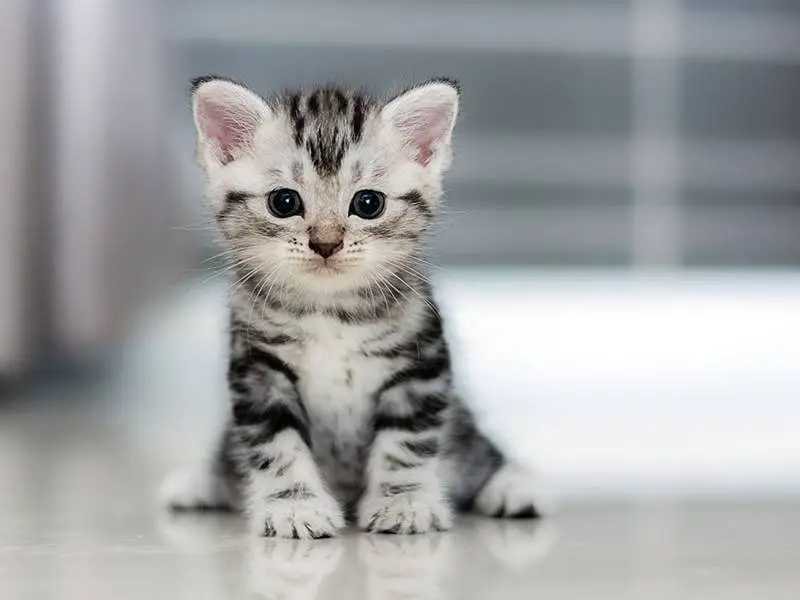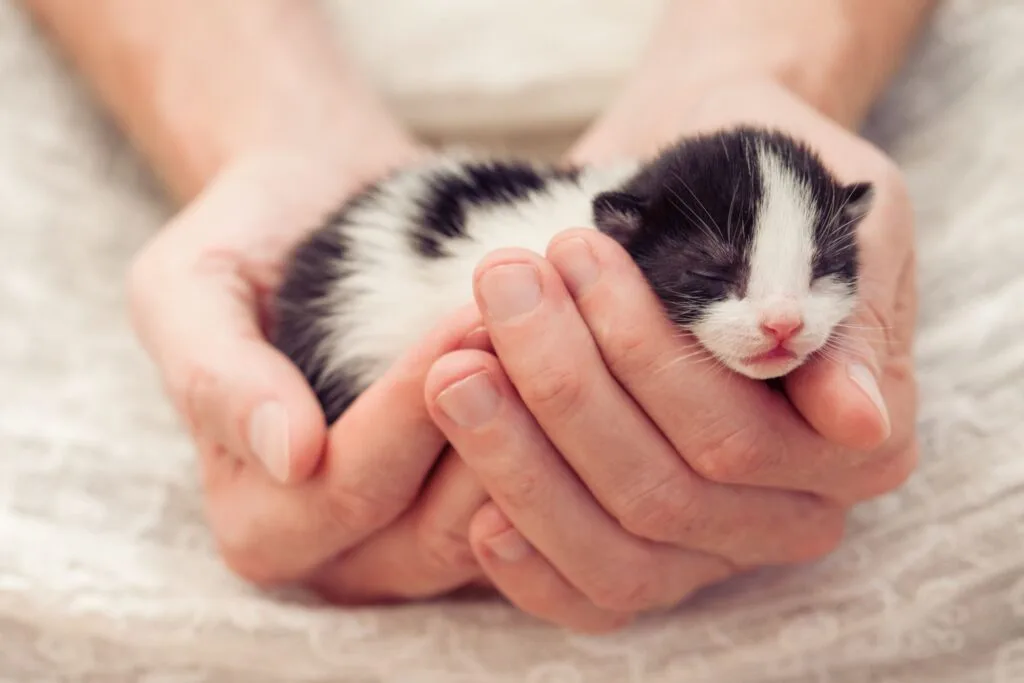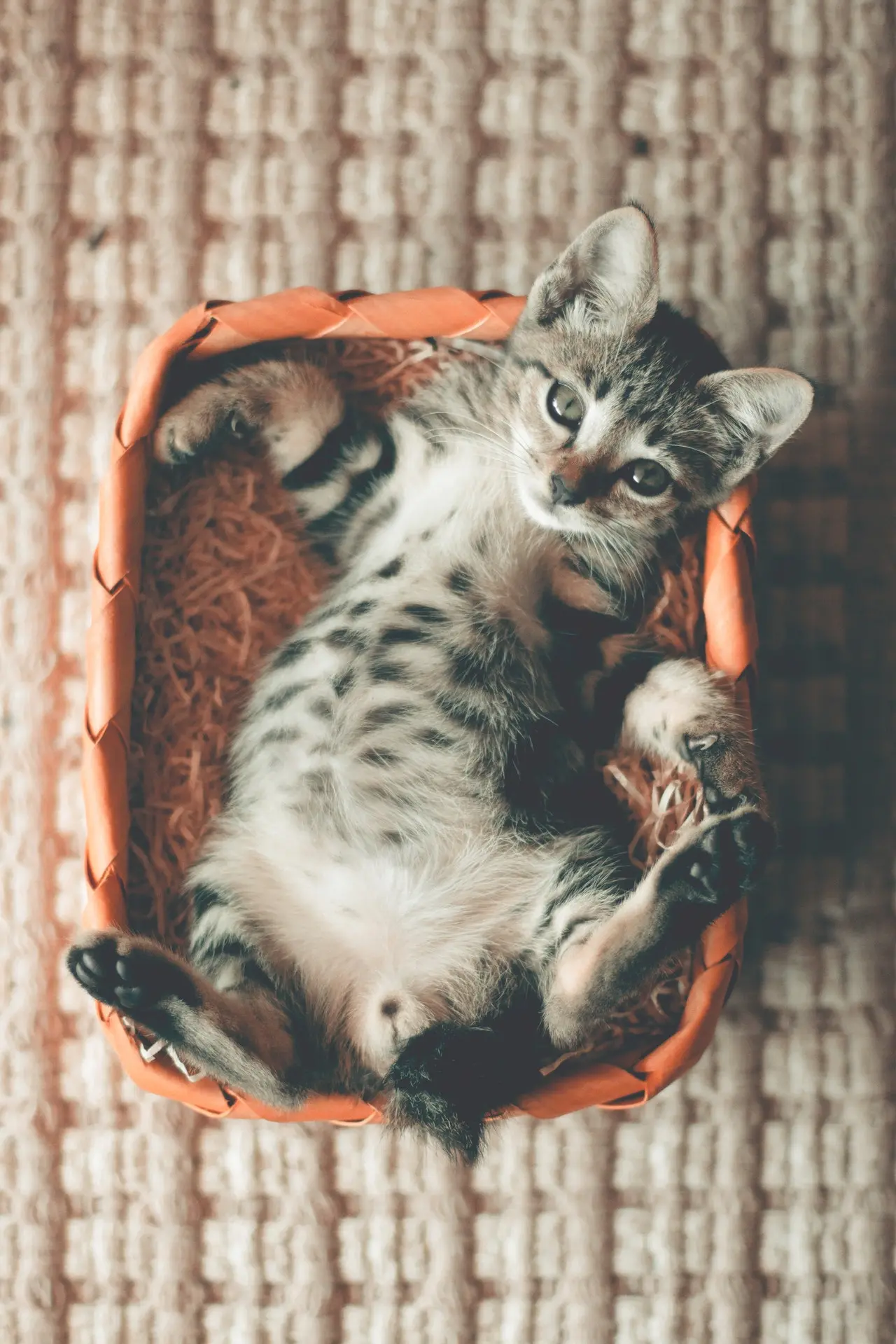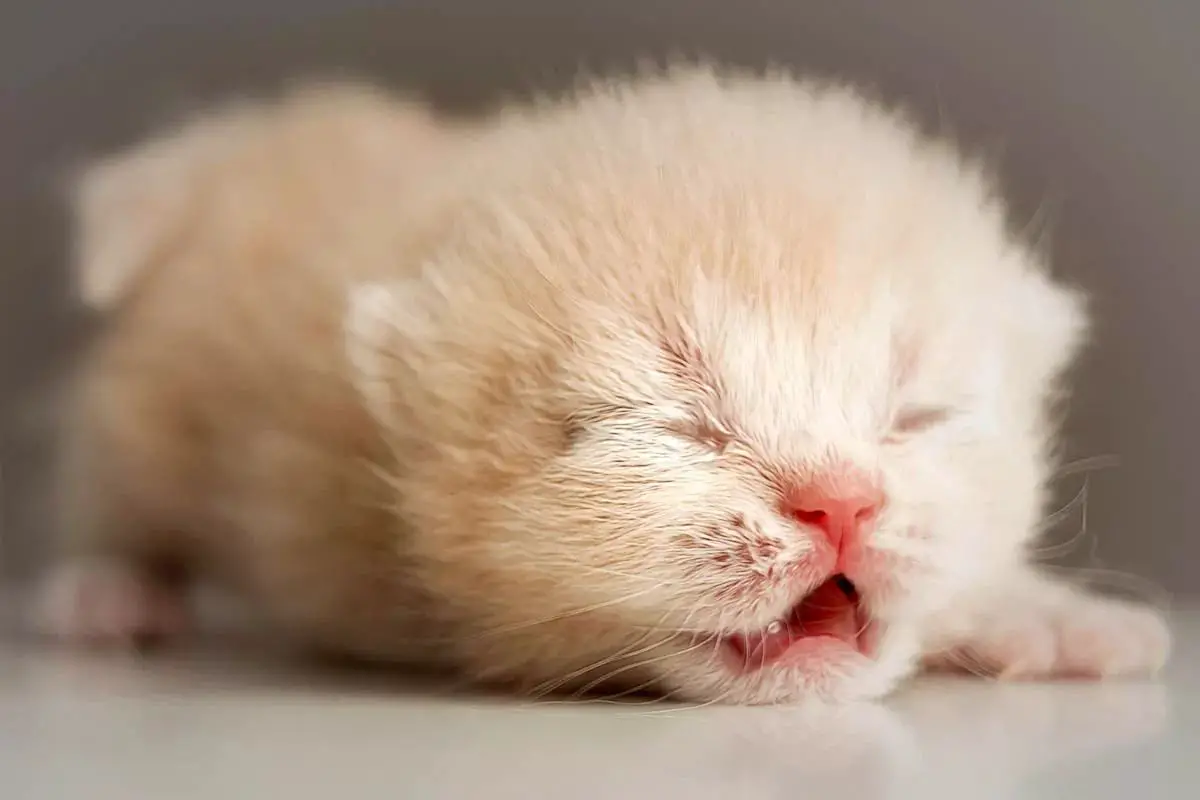The birth of a new litter of kittens is a much-anticipated event for any cat owner. The excitement goes through the roof near the last days of the cat’s pregnancy.
Unfortunately, situations happen when all the happiness is replaced with disappointment and sadness. Stillborn kittens and death in kittens shortly after birth is not uncommon in cats. According to some studies, 7 percent of kittens are born dead or die a week after.
There are a lot of things to consider when you end up dealing with one or even a whole litter of dead kittens. It’s a difficult time for the mother as well.
I’m going to explain what steps to take and how to make the most of this uncomfortable situation.
What To Do With A Dead Kitten After Birth?
In short: Let the mother spend time with her dead kitten, clean the area thoroughly and use disposable gloves to present the kitten to your vet to determine cause of death and then decide which kind of burial you want (cremation is pretty common for this situation).
As bad it may seem to leave the dead kittens lying on the floor or the bedding you simply will need to for the sake of the grieving mother. Cats soon after forget that such a tragedy happened, but for the time being, they are filled with sadness.
If your cat gave birth to a dead kitten or more dead kittens she needs some time to sniff them and count them. Once she realizes some are dead she won’t experience strong anxiety episodes manifested with a continuous search for the lost baby.
15 minutes of grievance is enough for most mothers to come to their senses. Removing a dead kitten after birth too fast can leave her agitated and she may even try to bite you when attempting to move the body.
There are occasions when you should completely prevent the mother from contacting the dead baby. Some kittens are born with ruptured or severely damaged bodies. Chances are their bodies are covered with harmful bacteria and should be immediately removed from the litter.

Some female cats may attempt to bury or hide their dead kittens. If they have access to a garden it’s likely that’s the burial area they are going to choose. Others will just stuff the dead baby deep in the bedding or push it outside.
While she shows this type of behavior, it’s best if you let her finish with the whole ceremony. Once the cat stops paying any attention to the lost kitten you can remove it.
In the meantime, while you protect the dam, you have to think about the other living kittens (if there are any) and the spread of infectious diseases. The process of decomposition begins almost immediately after death.
Never touch a dead kitten after birth with bare hands because there is a high risk of getting an infection and spreading it. Using disposable gloves place the dead kitten (along with the placenta) inside a freezer bag that can be sealed.
Put the first sealed bag in another sealable bag. While removing the gloves turn them inside out and properly discard them. Any other object that has been in contact with the dead kitten should also be disposed of.
The dead body and the placenta need to be taken to the veterinarian for examination as soon as possible. When the vet clinic is out of hours you can refrigerate (not freeze) the kitten away from food and drinks and sanitize the area after you take it out.
In the meantime, while you protect the dam, you have to think about the other living kittens (if there are any) and the spread of infectious diseases. The process of decomposition begins almost immediately after death.
The dead body and the placenta need to be taken to the veterinarian for examination as soon as possible. When the vet clinic is out of hours you can refrigerate (not freeze) the kitten away from food and drinks and sanitize the area after you take it out.
The mother together with any other living kittens also needs to be checked by a veterinarian. The dead kitten has an examining priority to verify the cause of death. Once established the vet will provide recommendations for treatment or additional testing for the mother and the live kittens.
Examination of the cat mother usually includes:
- Checking for retained kittens in the uterus or birth canal
- Evaluating the possibility for mastitis (inflammation of the mammary tissue)
While your visit to the vet clinic the discussion of different ways to dispose of the body/bodies might come up.
One option is to bury the kitten yourself. You can choose between a pet cemetery, your backyard (if allowed by law), and human cemeteries with designated pet sections.
The general rule for burial is to put the body at least 4-5 feet (1-1.5 meters) deep in the ground. This way you prevent the mother from spotting and digging up the body and ensure there is no disease transmission.
Different cities have different regulations so always research the legal aspects of kitten burial first.
Some vet practices offer private cremations where the kitten can get cremated and the ashes returned to you in an urn or a plastic bag. If you consider spreading the ashes, be careful about choosing a location – concentrated quantities can damage plant population by changing soil pH levels.
Communal cremation chambers mean that the pet is cremated at the same time as other animals so you can’t get any ashes back.
My Cat Only Had One Kitten And It Died
If your cat had one kitten and he/she died, you should let the mother take her time, clean the spot and then visit the vet.
The same rules apply to the vet examination and burial/cremation when it’s only a single kitten born.
However, the single kitten syndrome is a very rare occasion indeed. If you are not sure of the number of babies expected you should get the mother examined for other kittens stuck in her abdomen.
My Cat Had Kittens And They All Died
A litter of kittens without any survivors leaves the owners saddened but also in doubt about what caused such an outcome in the first place.
Before you start looking for answers you must ensure that the mother is in good health condition after all of her kittens died. When you have your peace of mind, you can explore the different possibilities that led to the dead litter of kittens.
Why Is My Cat Giving Birth To Stillborn Kittens?
There are few causes for a cat giving birth to stillborn kittens:
- Dystocia
- Nutritional deficiencies
- Medications
- Infections
- Congenital Defects
Dystocia refers to a difficult birth and can be a result of wrong fetus positioning, narrow pelvis of the mother, too large kittens, and absence of uterine contractions.
The narrow pelvis is a concern in younger cat mothers and large kittens are a problem when the father is way larger than the mother.
During difficult birth, the kittens remain stuck in the uterus longer than they should have. This can result not only in a stillborn litter but serious health complications for the mother as well.

Nutritional deficiencies occur when the mother doesn’t receive enough vitamins and energy sources essential for labor and nursing. Veterinary check-ups and vet advice during pregnancy can help you ensure the mother is properly nurtured.
Many medications from steroids to cardiovascular drugs can cause a cat to give birth to stillborn kittens. Talk to your vet if your continuously medicated cat gets pregnant.
Genetic defects and toxin exposure are responsible for abnormal conditions in the form of congenital defects. In most cases, they prove to be fatal for the unborn kittens.
The two most common microorganisms responsible for kitten death are Brucella Melitensis and Feline Viral Herpesvirus, which causes embryonic and fetal death.
Kittens get Feline Viral Herpesvirus when they pass through the birth canal and after infection remain weak and fail to thrive, eventually dying. Sometimes the virus can infect unborn kittens in the uterus also and cause miscarriages and stillbirths.
What Causes A Cat To Have Stillborn Kittens?
The fading kitten syndrome describes a situation when the kitten appears normal at birth but dies within 2 to 9 weeks.
Symptoms of a Fading Kitten Syndrome can all cause a cat to have stillborn kittens. They include:
- Reduced activity
- Low body temperature
- Reduced vocalization
- Lack of nursing
This problem in kittens is caused by a variety of things. Inadequate nutrition of both the mother and the kittens can be fatal for the whole litter. Hypothermia is also a common cause of death since kittens can’t maintain their body temperature too well.
Kittens are vulnerable to parasites, bacteria, and viruses which can be contracted from the placenta, the milk, the environment, all of which can cause a cat to have stillborn kittens. Pathogens can be more potent in overcrowded litters and spread in the blink of an eye.
Inexperienced mothers sometimes accidentally step on the kittens, lay on them, or cause damage when eating the placenta. You can’t keep an eye on the mother all of the time, but if it’s her first litter try to minimize the incidence of traumatic injuries to the kittens.
Mother Cat Won’t Stop Looking For Her Dead Kitten
A mother cat won’t stop looking for her dead kittens until she completely understands that the kitten is gone. Give her some time – days, or in some cases even weeks, and also space – to explore around the house and become more comfortable with how she feels about this.
If there are live kittens, redirect her focus on them.

When there are no live kittens she can pay attention to, you can try offering her small stuffed toys that resemble a kitten in size and form.
How To Comfort A Mother Cat Who Lost Her Kittens
Giving the mother enough time to grieve on her own is the best thing you can do to comfort a mother cat who lost her kittens. Pay a lot of attention to her and when you talk use a calm tone and a lot of praise.
If she feels like snuggling with you then thankfully accept her but if not, don’t try to touch her if she still doesn’t feel like it.
Do Cats Mourn The Death Of Their Kittens?
Cats get really depressed and anxious when they lose their kittens. Just like people, you can expect a mother cat to mourn the death of their kittens, and alter her behavior.
They move slowly, sleep a lot, and have decreased appetite and motivation to play.
All cats are different and can remain in this state for weeks and even months. The good news is that eventually, all of them manage to come around.
What To Do If Dead Kitten Gets Stuck Inside A Cat?
Dead kittens get stuck inside a cat all the time. They might be the reason why the rest of the litter cannot be delivered.
Dead kittens stuck inside a cat can be either taken out manually by a skilled vet or the babies will need to be surgically delivered.
It’s important to know the symptoms of labor and behavioral and physical changes a few days before. If you are prepared, you will know when to take your cat to the vet if the labor goes wrong.
Do Mother Cats Eat Their Dead Kittens?
An instinctual drive for some female mother cats, especially the inexperienced ones, is to eat their dead kittens. It’s quite uncommon behavior, but when it happens, it starts with obsessive licking and grooming of the dead kitten.
It’s very unsafe for the mother to consume their dead kittens so it’s advisable for the owner to remove it from the side before she starts biting it.


Leave a Comment